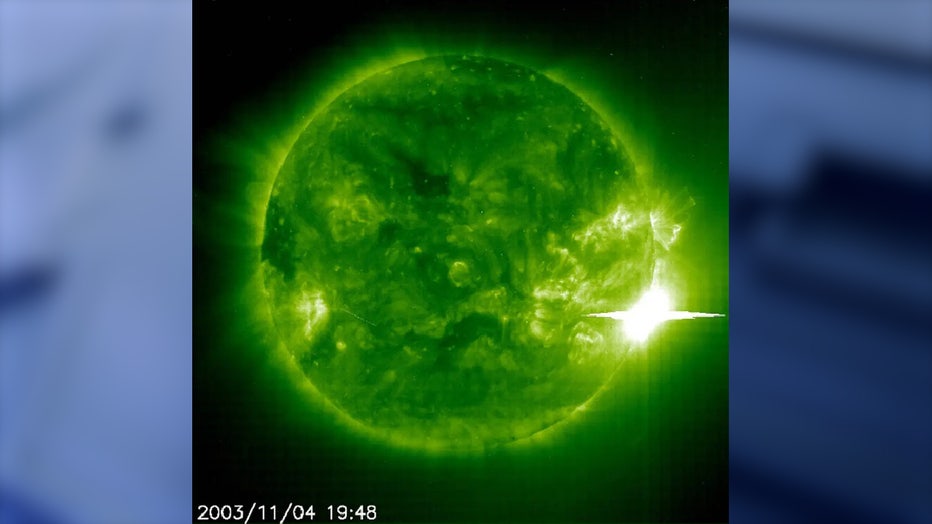Can a solar flare be to blame for the AT&T nationwide outage? Here's what the NOAA says

Nationwide AT&T outage impacting multiple states
An early morning AT&T outage is impacting people nationwide in the United States Thursday morning.
With AT&T having been victim to a solar flare back in 1972 – can the same issue happen again?
According to Space.com, a major solar flare interrupted AT&T's service on Aug. 4, 1972. Long-distance phone communication was knocked out across several states.
"That event, in fact, caused AT&T to redesign its power system for transatlantic cables," Space.com wrote, citing a NASA account of the event.
NASA reported that a solar flare happened at around midnight.
According to the National Oceanic and Atmospheric Administration (NOAA), three flares erupted from the sun in the afternoon on February 21 into the overnight hours.
The strongest of the three flares happened at 6:07 p.m. on February 21 and the second peak happened at 1:32 a.m. on February 22.
Although solar flares can affect communication systems, radar, and Global Positioning Systems – due to the level of intensity, it is unlikely that the solar flares contributed to AT&T's cellular network outage.
AT&T OUTAGE: Several states across the U.S. reporting wireless cellular network issues
What is a solar flare?
According to NASA, a solar flare is an intense burst of radiation coming from the release of magnetic energy associated with sunspots.
Flares are our social system's largest explosive events.
They are seen as bright areas on the sun and they can last from minutes to hours.

Credit: NASA
AT&T NATIONWIDE OUTAGE: What to do if your iPhone is stuck on SOS mode and you can't call 911
One of the most popular solar flares appear as the northern and southern lights showering neon lights over the earth's atmosphere.
NASA monitors flares primarily through X-rays and optical light.
The last solar flare happened on November 4, 2003, and was captured above the SOHO spacecraft.
Why is service out for AT&T?
AT&T has issued a statement to FOX 35 in reference to Thursday's massive outage that says:
"Some of our customers are experiencing wireless service interruptions this morning. We are working urgently to restore service to them. We encourage the use of Wi-Fi calling until service is restored."
Outage issues were initially reported to Downdetector shortly before 4 a.m. and many are still reporting that they have no service.

